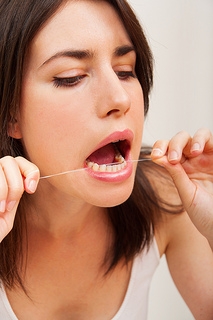Is it possible to over brush?
August 25th, 2015

Our team at Barney Family Dental will tell you brushing on a regular basis is critical for a healthy mouth, but you can definitely overdo a good thing. Known as “toothbrush abrasion,” over brushing can lead to sensitive teeth and receding gums, not to mention the wearing down of the protective layers of your tooth enamel. Over brushing can also push back your gums, and in the process, expose the dentin layer under the enamel.
“So, how do I avoid over brushing?”
- Use a soft or extra-soft bristled toothbrush to prevent gum damage and wear on the soft tooth dentin
- Keep in mind which direction bristles face when you brush. They should be perpendicular, not parallel. Place the head of your toothbrush with the tips of the bristles at a 45-degree angle to the gum line and brush away!
- Move the toothbrush with short strokes and a scrubbing motion, several times in each spot – don’t saw back and forth across the teeth with your toothbrush.
- Apply just enough pressure to feel the bristles against the gums. If you are squashing the bristles, you're brushing too hard.
- Replace your toothbrush when you notice frayed and bent bristles.
- Brush for two minutes at a time
If you have any questions about proper brushing techniques, ask us about it at your next appointment or give us a call today!




 Website Powered by Sesame 24-7™
Website Powered by Sesame 24-7™